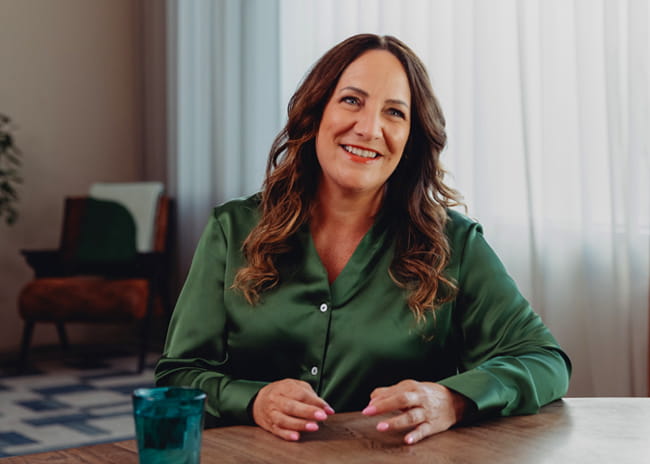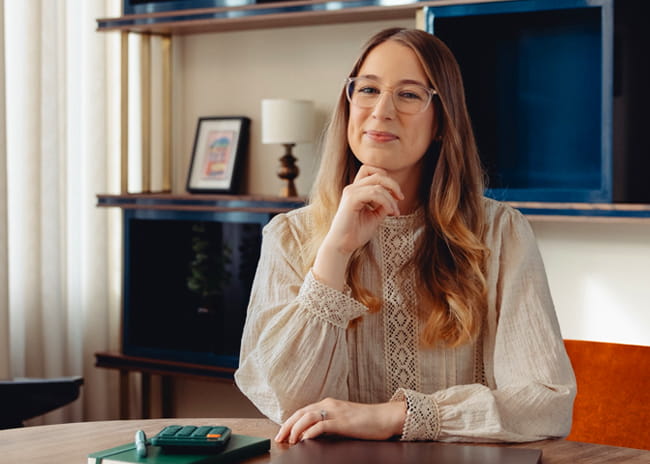Go paper-free
Amend paper-free preferences for your statements and correspondence.

Meet our ISA experts. They’re here to arm you with all the facts you need to approach ISAs (Individual Savings Accounts) with confidence.

People often think that ISAs are just for people with lots of money. But it's not true.
You don’t need a large sum to open an ISA. In fact you can start with as little as £1 with some of our cash ISAs. And you can open one from age 18 onwards.
ISAs are good for anyone who wants to save and grow their money tax-efficiently, no matter what they earn. Even small regular payments can make a huge difference over time.
Emma Lloyds Financial ExpertA lot of people will think that it's not for them, because either they're not paying tax on their savings right now. Or they don't have a lot of money to save. But I always say that it's kind of a way of future proofing your tax efficiency.

Although many people think it, there isn’t just one ISA. There are a few types. The two main ISAs to consider are cash ISAs and investment ISAs, of which there are a few different accounts to choose from – each offering different ways to control and access your money.
If you’re new to ISAs, a cash ISA is probably the best place to start. They are low risk and hence offer steady, predictable growth.
Some cash ISAs come with easy access, should you need to get to your money quickly in the short term. Others offer fixed rates, typically for one or two years, where you can’t access your money early without a penalty.
Shen Lloyds Financial ExpertIf you’re thinking of saving in the short or long term, ISAs have to be the first place to look, before anything else.

Many people think they're too old to take out an ISA. This is wrong.
No matter how old you are, you can still benefit from tax-free allowance.
Even though you might feel you've missed out in the past, it doesn’t mean you should miss out on tax-free savings in the future.
Eileen Lloyds Financial ExpertOne of our customers had been saving for years in a traditional savings account and had amassed a large sum – but was also being taxed on those savings. Once we made him aware of the advantages of switching to an ISA, he was immediately able to take advantage of saving tax free on his first £20,000. Better still, as he was saving jointly with his wife, she was able to use her allowance of £20,000 as well.

Another misconception is that you can only have one ISA.
The truth is, you can have both a cash ISA and an investment ISA at the same time, as long as you’re within your allowance.
That way, you can cover all the bases – by having a low-risk cash ISA, which is perfect for short-term goals like a holiday. And a higher risk investment ISA, which is good for those longer-term goals, like the deposit for buying a house.
And you can also transfer all, or some, of your money into your different ISAs as your life and goals change.
Tulip Lloyds Financial ExpertI've been saving and sacrificing for years to afford my dream wedding. A cash ISA, with the tax-free benefits, has been perfect for this as I need as much in my pocket as possible. Also the easy access has been a godsend, as there have been so many vendors to pay, from florists to caterers. Once the wedding's paid for I'll carry on saving the same amount of money each month. I’m so used to the habit now and it’s really paid off. But instead of putting it into a cash ISA, I'll open an investment ISA. That'll help my money work harder towards my long-term goal of buying a bigger home.
Here's some of the key rules and legal stuff you need to know about ISAs.
We hope our experts have given you a useful piece of their collective minds. But if you want to explore further just which ISA is right for you, you can compare our ISAs.
Whether you’re new to investing or experienced, it’s always good practice to keep learning.
Weigh up your saving and investment options to find a combination that works for you.